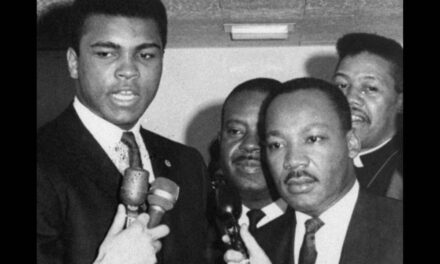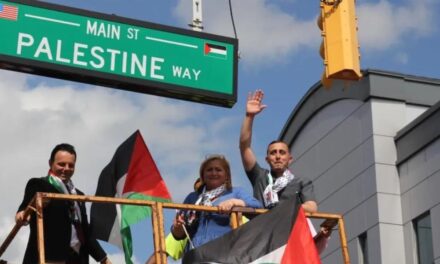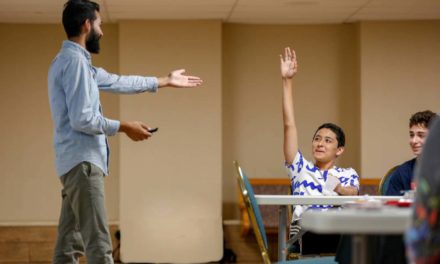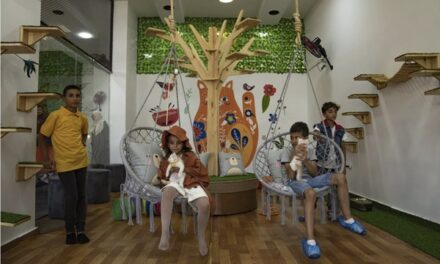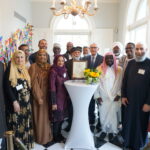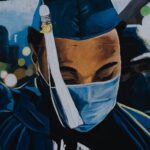The Institute for Medieval and Post Medieval Studies (IMPMS) has invited Turkish scientist, who made history as the first Muslim woman to have a galaxy named after her, to speak at the University of Texas at Dallas this weekend.
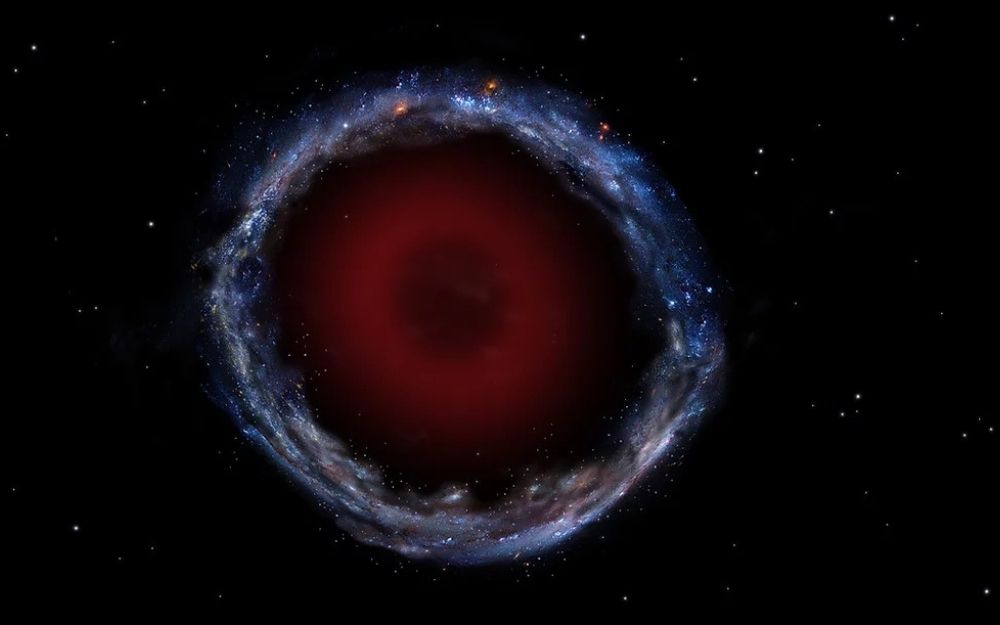
Burçin Mutlu-Pakdil, Ph.D., will be speaking about the rare galaxy, PGC 1000714, which she helped to discover in 2016. She will also be presenting her current research on dark matter, black holes, and other peculiar ringed galaxies. The discovery of her dwarf galaxy raises many questions about how the Universe works.
“This particular galaxy has two rings with no visible materials attached to them,” Dr. Basheer Ahmed, President of IMPMS, said. “It is a phenomenon which no one had ever seen before.
Since her groundbreaking discovery, Mutlu-Pakdil has received several awards and honors. She currently serves as a Postdoctoral Fellow with the National Science Foundation and the Kavli Institute for Cosmological Physics at the University of Chicago.
Mutlu-Pakdil is an astrophysicist from a small town in Turkey. She is the first member of her family to graduate from high school. She obtained her Ph.D. in astrophysics from the University of Minnesota, where she found the galaxy that is now named Burcin’s galaxy.
“Her story and persistence in her desire to achieve her lifelong goal of being an astrophysicist is very fascinating and can serve as a source of inspiration for the young students in this country or anywhere in the world,” Dr. Basheer said.
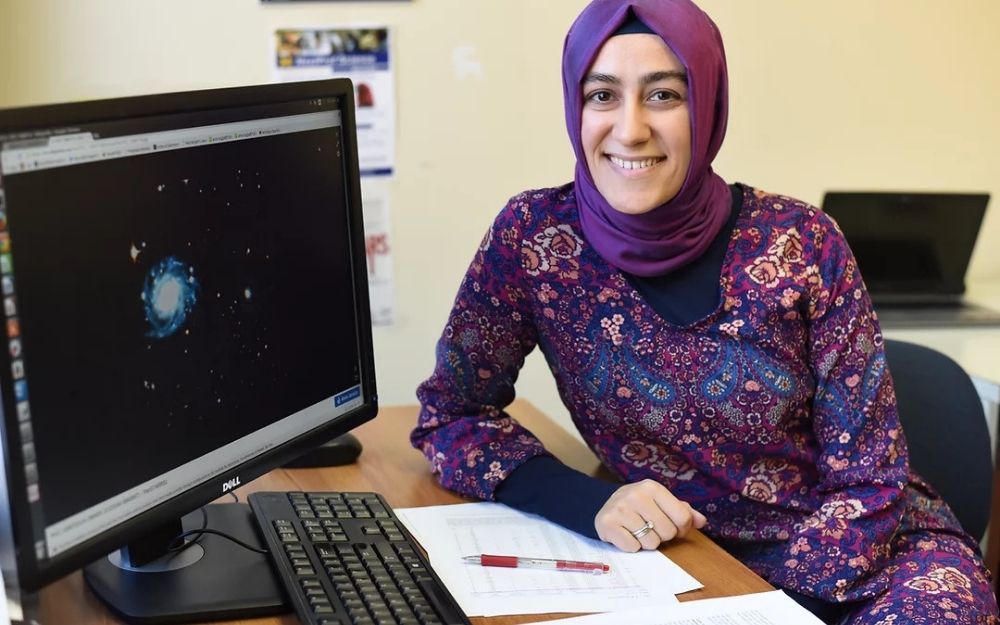
Pictured: Burcin Mutlu-Pakdil
Mutlu-Pakdil, who has chronicled how difficult it was for her as a woman to pursue a career in science, admits she initially faced doubt from her family and community as she began her education at Bilkent University in Turkey. But her passion for the stars kept her going as she made the bold decision to travel to the United States to continue her education at Texas Tech University.
Muslims have studied science and humanities since before the Dark Ages of Europe according to Dr. Basheer, who founded IMPMS in 2009, in hopes of “helping generate a climate of mutual understanding and respect among people, of all faiths and cultures.” He says Middle Age Muslim civilizations pursued knowledge with inspiration from the Quran.
According to the Institute, in 763 AD, Khalifa Haroon Al Rasheed established “Baitul Hikma”, the House of Wisdom, which is where Latin and Greek knowledge was translated into Arabic. This establishment attracted scientists and scholars from all over the world.
IMPMS is working to bridge the gap between Muslim Medieval scholars and the Western world. Knowledge and learning from Islamic civilizations are often not included in Western academia. It has presented the contributions Muslims have made in science and the humanities to teachers, students, and church congregations all over the country.
“For 20 years, we have been making presentations in different forums and seminars for disseminating the information about medieval scholars and their contributions to human civilization,” Dr. Basheer said.
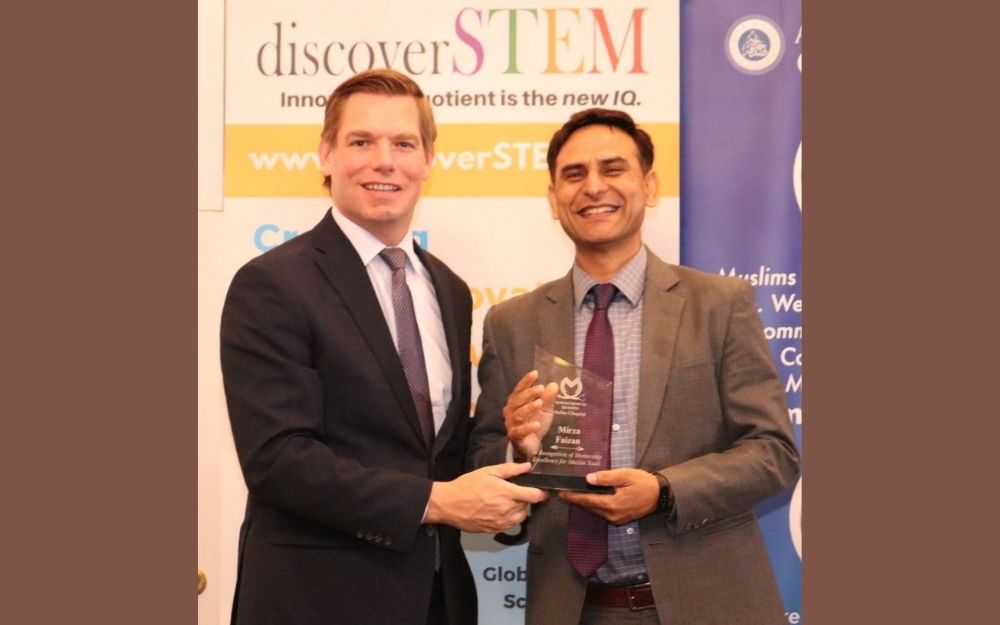
IMPMS has especially focused on encouraging young Muslim scientists by collaborating with community organizations and schools. It’s also working with Dallas-based discoverSTEM academy, whose co-founder, Faizan Mirza, is also on the board of IMPMS.
Earlier in the day on Saturday, he will be hosting Mutlu-Pakdil in his innovation lab in Plano to meet the young innovators he mentors. He says her achievements are considerable.
“We are very excited to host this brilliant young scientist. Her work is an example of scientific excellence and the fact that she is a Muslim woman, will encourage young Muslim girls that they too can achieve in science and can make a global impact,” Mirza said. “Dr. Mutlu-Pakdil’s success is another great example of the ‘American Success Story’ where an individual who is an immigrant woman, and a Muslim, gets an opportunity to rise to the pinnacle of her domain, irrespective of her background.”
Inviting Mutlu-Pakdil to speak about her accomplishments and research, is part of IMPMS’ mission to uplift Muslims in the science, technology, engineering, and mathematics community. With this, they hope to further engage students and inspire them to get more involved in STEM-related activities.
“I am sure that young students would be fascinated to hear this story and her discovery,” Dr. Basheer said.
The event will be held on Saturday, May 21st at 4 p.m. Tickets can be purchased through this Eventbrite link, admission includes a boxed dinner.
By Maya Gayler

